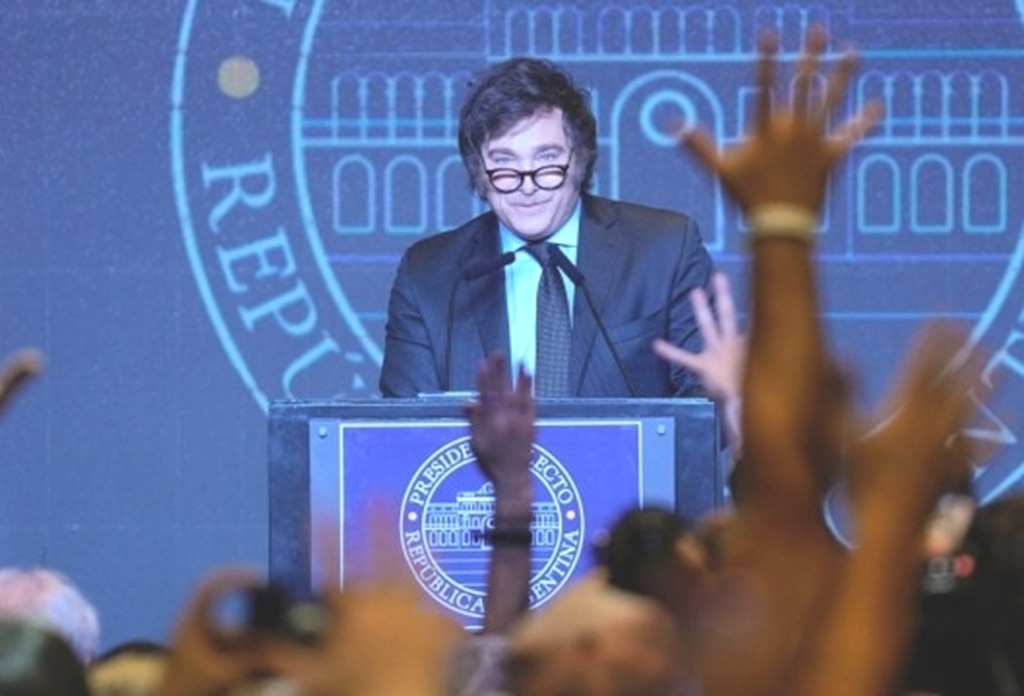World
Argentina Pulls Out of the World Health Organization

Argentina’s President Javier Milei announced Wednesday that his country will leave the World Health Organization (WHO), following in the footsteps of the United States. He cited concerns about the UN body’s handling of the COVID-19 pandemic.
President Javier Milei lamented “one of the most bizarre crimes against humanity” as he explained the reasons for the move, citing the economic fallout from COVID-19 lockdowns.
Argentina’s self-proclaimed “anarcho-capitalist” leader stated that the WHO served as “the executing arm of what was the greatest experiment in social control in history.”
The South American country withdrew from the UN health agency two weeks after Trump, Milei’s ideological ally and hero, signalled Washington’s intention to exit.
Milei’s decision was based on “big differences regarding health management, especially during the pandemic,” spokesman Manuel Adorni told reporters that Argentina would not “allow an international body to interfere in our sovereignty.”
Argentina had been hard hit by the pandemic, with approximately 130,000 deaths, and Milei’s predecessor, Alberto Fernandez, imposed a five-month lockdown in 2020, which was widely viewed as crippling for the struggling economy.
Adorni insisted that Argentina’s withdrawal from the WHO provided “greater flexibility to implement policies adapted to the context” locally and “greater availability of resources.”
WHO Silent on Argentina’s Departure
According to WHO data, Argentina paid the organization approximately $8.75 million in membership fees between 2022 and 2023, accounting for 0.11 per cent of the total budget. It planned to contribute $8.25 million in 2024-2025.
The vast majority of the UN agency’s budget comes from voluntary contributions, of which Argentina has made none in recent years.
Adorni reported that Argentina “does not receive funding from the WHO, so this measure does not represent a loss of funds for the country.”
He also accused the body of “a lack of independence.”
Argentina refused to join the WHO’s new pandemic protocol last year and announced its intention to withdraw from the agency entirely.
Federico Merke, an international relations expert at the University of San Andres in Buenos Aires, Argentina, believes the move will isolate Argentina regarding information sharing and cooperation in the event of a new pandemic or other health threat.
President Milei Agrees with Trump
Milei is an open supporter of Trump, who signed an order withdrawing the United States from the WHO within hours of his January 20 inauguration, a body he has also criticized for its handling of pandemics.
Washington was the largest contributor to the Geneva-based organization, which Trump claimed had “ripped us off,” and the US withdrawal leaves global health initiatives underfunded.
Since taking office in December 2023, Milei has slashed public spending, vowing to keep the budget deficit at zero after years of excessive spending.
His austerity measures are thought to have pushed millions more people into poverty, but the country posted its first budget surplus since 2010, with inflation falling by nearly half.
Milei was the first foreign leader to visit Trump at his Florida estate, Mar-a-Lago, following the Republican victory in the November US election.
His decision also raises questions about Argentina’s future adherence to the 2015 Paris Climate Change Agreement, which required countries to limit greenhouse gas emissions to keep the global average temperature rise below a critical threshold.
Another of Trump’s first actions after taking office was withdrawing from the Paris Agreement.
Milei’s Argentina, which is pursuing a free trade agreement with the United States, previously stated that it was “reevaluating” its strategy on all climate change-related issues.
President Milei’s economic reforms in Argentina brought significant changes. He cut public spending, reduced taxes, and pushed for free-market policies. To tackle inflation, he replaced the peso with the US dollar, stabilizing prices but sparking debate.
His government also reduced trade restrictions, attracting foreign investment and boosting exports. While these moves have energized parts of the economy, critics worry about rising inequality and social tension. The reforms mark a sharp shift, and their long-term effects remain closely watched.